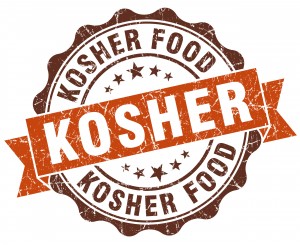Tag Archives: Leviticus
The Similarities Between Sin and Germs
The surprising way Leviticus chapters 12, 13 and 14 relate to you
These several chapters are some of the most difficult ones in the Torah for us to wrap our brains around spiritually. What is the relevance of these arcane laws of ritual impurity and “leprosy” to us in modern times ? With a little thought, we can see that there are some deep and relevant spiritual truths contained in these biblical passages!
As Matthew Henry points out in his classic gospel-oriented commentary on these passages, after the laws concerning clean and unclean foods in Leviticus 11 come the laws concerning clean and unclean persons. As germs are contagions causing physical disease, so man is infected with the spiritual contagion of a sin nature that brings about spiritual disease leading ultimately to death. Henry points out that man imparts his depraved sin nature to his offspring at the time of conception, which is why the woman needed to go through ritual cleansing at the time of a child’s birth. Similarly, the Bible teaches us that the plague of leprosy (Heb. tzaaras referring to a generic skin disease) was judgment by Eohim against the sins of rebellion, greed and misuse of the tongue (e.g, Miriam, Gehazi and King Uzziah).
The spread of and cure for spiritual diseases is similar to those of physical diseases, as we’ll discuss below. First, however, let’s compare and contrast how physical germs are similar to spiritual sin “germs.” Continue reading
New Video: The Biblical Dietary Laws: Godliness Is the Main Thing
Why are the biblical dietary laws still relevant today followers of Yeshua (Jesus)? As this video shows, it is primarily a godlines and holiness issue, and only secondarily a health issue. When giving his people the laws of clean and unclean meats, Elohim was wanting them to be holy as he is holy, and he still wants a holy people who live an unpolluted lifestyle today.
How does a red flag, sin and the mouth correlate?
Leviticus 13:45, Cry, “Unclean, unclean.” A skin disease was like a red flag, which if a person had it was regarded as a judgment from Elohim for the sin of slander, gossip, murder with the mouth, false oaths and pride as well as sexual immorality, robbery, and selfishness. That person was considered to be physically and spiritually contagious and so was put outside the camp of Israel until the disease was gone. According to Samson Hirsch, quarantine was a means of shocking the sinner into recognizing his moral shortcomings and his need to repent (The ArtScroll Chumash, p. 613).
What if each time we sinned with our mouth we were quickly struck with a visible sin disease for all to see resulting in our being quarantined and shunned? Perhaps the incidences of lashon hara (the evil tongue) would greatly diminish. If you received heaven’s judgment each time you misspoke, how would you change your speech habits and heart attitude toward others? Now live your life from this point on as if the next time you spoke evil of someone (without a righteous and biblically justifiable reason) you would be instantly judged by YHVH in a visible and public way.
What is the connection between Leviticus chapters 11 and 13? Both involve the mouth. The former Torah passage deals with uncleanness that goes into the mouth through what we eat. This defiles the man from within. The latter passage deals with what comes out of the mouth and how the man with a defiled heart corrupts society through the wrong use of his mouth. What did Yeshua say about this in Mark 7:14–23? What were the penalties in the Torah for eating unclean meats? (Read Leviticus 11.) Though the Torah calls eating unclean meats an abomination and declares that doing so defiles a person, interestingly there are no stated penalties for doing so. Now what are the penalties for speaking gossip and slander? It is a skin disease and required excommunication from the camp of Israel. Both eating unclean meats and speaking gossip and slander are sins to be sure, but the penalties for the one is much greater than for the other indicating the seriousness YHVH places on the right usage of the mouth. Ponder this for a moment: How easy it is for us to overly focus on what goes into our bellies, while at the same time ignoring the raw sewage spewing out of our mouths at times.
In conclusion, lest anyone think that clean and unclean meats is not a serious issue, YHVH clearly states in Isaiah 66:17 that in the end times during the day of Elohim’s wrath (referred to as the great and terrible day of the YHVH), those who are found to be eating swine’s flesh and other abominable foods will be consumed by the fire and sword of YHVH Elohim. We can infer from this that by then (presumably, the Millennium or Messianic Age) if people still have not repented of their sins and are refusing to turn to YHVH and obey him, they probably will deserve to die because of the perennial rebellious state of their hearts. This all the more underscores the fact that the mouth—what goes in and what comes out of it—are difficult issues for humans to deal with, but YHVH demands that we take personal responsibility for the use of our mouths. Let us not forget the warning admonition of Yeshua,
But I say unto you, that every idle word that men shall speak, they shall give account thereof in the day of judgment. (Matt 12:36)
The Heart & Spirit Behind the Biblical Dietary Law
The Genesis creation account records that YHVH Elohim made man in his own image (Gen. 1:26). As such, the first humans, Adam and Eve, had spiritual communion with their Creator. Though man fell quickly to the temptation to sin, which separated him from a sinless, set-apart and righteous Creator, YHVH has desired to redeem man from the power of sin to be set-apart (kadosh) as he is set-apart (e.g. Lev 11:44).
Israel was redeemed from YHVH’s judgment against sin when they sacrificed the lamb on Passover and painted the blood on the door posts of their homes. YHVH then immersed Israel in the Red Sea (a picture of baptism for the remission of sins) and led them to the foot of Mount Sinai. YHVH revealed his Torah-truth (his instructions, teachings and precepts in righteousness) to the nation of Israel from Mount Sinai so that they could become a set-apart (kadosh) kingdom of priests (Exod. 19:6). He was showing them the pathway of righteousness so that after having been redeemed by the blood of the lamb—a direct prophetic picture pointing to Yeshua the Lamb of YHVH slain from the foundation of the world—they could have fellowship with him by avoiding sinning by walking in the straight and narrow path of righteousness.
Part of the walking in a loving relationship with a righteous and totally set-apart (kadosh) YHVH involves keeping his commandments as Yeshua said in John 14:15. To know and to love YHVH is to obey his commandments (1 John 2:3-6). Those who love him and back up their belief in him with the actions of obedience (faith without works is dead, Jas. 2:14-26) are better off than the demons who believe in Elohim only, but do not back up their belief with obedience to YHVH’s righteous commands. Those who love and obey YHVH Continue reading
What is it worth to you?
Leviticus 10:13, Because it is due. In the days before coinage, a mans’ wages were weighed out in silver bullion or bartering occurred. In the case of the Levites (including the priests), they were given a portion of the offerings and sacrifices as their wages for serving the people. It is often the attitude of those in congregations that ministers should serve the people for free—without pay, and they therefore refuse to give. This is contrary to the Torah, which commands the Israelites to remunerate the Levites for their services (see Lev 27:30, 32). YHVH even calls the tithe to his ministers “their inheritance” (Num 18:21, 26).
Although the Testimony of Yeshua doesn’t uphold the concept of tithing per se, it does teach the Torah principle of giving to the ministry. For example, Paul instructed the believers in Philippi about giving. He addresses the issue of supporting his ministry and that by their faithfulness in giving to him it is in effect giving an offering (a sacrifice) to YHVH, and that the Philippians would be blessed for this (Phil 4:16–19). He goes on to say that we are to give to those who spiritually feed us (1 Tim 5:17–18). Paul backs up this assertion by quoting a Torah principle here.
Let the elders that rule well be counted worthy of double honour, especially they who labour in the word and doctrine. For the Scripture says, “You shalt not muzzle the ox that treads out the corn,” and, “The labourer is worthy of his reward.”
What’s more, the Scriptures tell us that great blessings from heaven accrue to those who tithe to YHVH’s spiritual work on earth (Mal 3:10–11).
To not tithe, according to the Scriptures is called “robbing Elohim” (Mal 3:8–9). Those who refuse to tithe bring a curse upon themselves (Mal 3:9). Paul rebukes the congregation in Corinth for not supporting him financially, and states that he has “robbed” other churches who did support him, thus forcing him to use their offerings to pay his ministry expenses in Corinth (2 Cor 11:8–9). Corinth was not the only stingy congregation in the first century. The problem seemed to be widespread then (Phil 4:15) as it is today.





